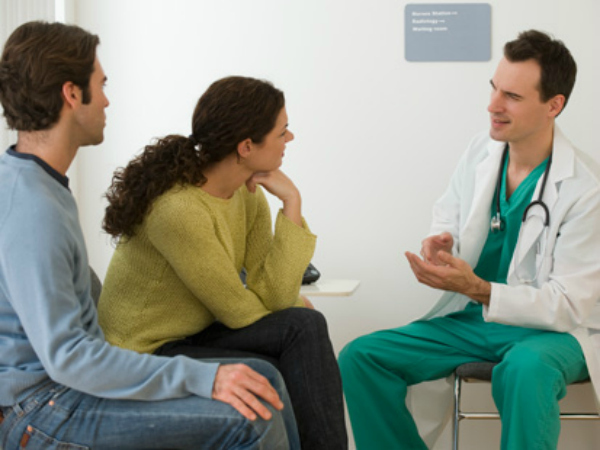
Bulimia Nervosa is a medical term used for an eating disorder which is characterized by frequent episodes of “binge” eating followed by “purge”, i.e., getting rid of eaten food. It is most common in youngster or teenagers, most often in women but also affects men. If untreated, Bulimia Nervosa can cause serious medical problem, sometimes life threatening problems such as anxiety disorders, depression, damage to digestive system, kidney, and heart etc.
Symptoms of Bulimia Nervosa
1. Uncontrolled obsession for food.
2. Eating until a point of physical discomfort reaches such a abdominal pain, bloating etc.
3. Excessive binging, consuming large amount of food in a short period of time.
4. Excessive purging, get rid of consumed food by self induced vomiting, using laxatives, taking enemas etc.
5. Over concerned about body weight & shapes, physical appearances.
Bulimia treatment
Bulimia nervosa can be managed effectively using an interdisciplinary approach. Bulimia nervosa can be treated either by psychotherapy or through medication. The course of treatment varies from person to person depending upon the condition of the patient. Bulimia that occurs with another condition may take longer time to get cured and may need more than one type of treatment.
The treatment of Bulimia nervosa can be broadly divided into two stages:
1. Non pharmacological treatment
2. Pharmacological treatment
1. Non pharmacological treatment
It mainly includes psychotherapy. In this therapy the psychiatrist, psychotherapist or a nutritionist / dietician provide counseling to the patient regarding their eating habits, behavior, thinking, attitude their mental status etc. If an individual is in initial stage of the disease and not suffering from any medical complications, individual physiotherapy such as Cognitive behavioral psychotherapy (CBT) or Interpersonal psychotherapy can be started as initial treatment.
A. Cognitive behavioral psychotherapy (CBT)
It is evidence based effective treatment for Bulimia nervosa. This therapy helps an individual to
a. Avoid undesirable eating habits.
b. Maintain a diet record.
c. Observe, identify and reduce concern about their body shape and size.
d. Allow self evaluation, enhanced self control, and develop self confidence about their body image.
e. Reduce binge eating and purging.
f. Understand about healthy nutrition and good eating habits.
g. Prevent future relapse.
B. Interpersonal psychotherapy (IPT)
This deals with specific issues of the patient that stimulate dynamic tensions that spur the patient’s symptoms such as grief, disputes, interpersonal deficits etc. Brief and focused therapy in these areas can prove effective in managing mood disturbances and low self esteem of the individual which may trigger Bulimia nervosa.
Psychotherapy given to individual may sometimes follow by family therapy also. Family based therapy can prove an effective treatment for children and adolescents with such eating disorder. It explores family attitude, relationship, communication, behavioral pattern, and other aspects which may trigger abnormal eating behavior in the family and help the patient to recover. Family based therapy makes sure that a healthy eating pattern is followed in the family and also helps to maintain a healthy family environment resolving family conflicts and provide support to the individual to regain the mental and physical status.
2. Pharmacological treatment
It includes medication. It is usually given along with psychotherapy to speed up the recovery process of patients who have not benefited or have suboptimal response to psychotherapy, or patient with chronic symptoms. Many antidepressants and mood stabilizers are used as a part of medication to treat Bulimia nervosa.
A. Antidepressant medicines
Antidepressant are mainly used to treat Bulimia nervosa. It helps to treat concurrent symptoms such as obsession, depression and anxiety of the patient as well as reduce the frequency of binging and purging. Fluoxetine (Prozac) is most commonly used drug to treat Bulimia nervosa, which is a type of selective serotonin reuptake inhibitor (SSRI). It is the only antidepressant which is specifically approved by Food and Drug Administration to treat this disease. It has strongest evidence of efficacy with fewest side effects. Other antidepressants such as Sertralline, Fluvoxamine, and Citalopram also proved effective in treating Bulimia nervosa.
Tricyclic antidepressant and monoamine oxidase inhibitors such as Imipramine, desipramine or phenelzine have also shown to be effective in treating the diseases, but they are used in small doses due to its toxicity. Phenytoin and Caramazepine may also help to reduce the frequency of binging. Other class of drugs such as mianserin, trazodone, bupropion are also used in the treatment. Decision about the treatment varies from patient to patient. Some mood stabilizers are also used in some cases to treat binge eating disorder and decrease weight, but usually they have a lot of side effect, therefore, most of the time they are avoided.
B. Hospitalization
Patients with serious medical problems may sometimes need hospitalization or surgical care also. It is required for patients who develop gastric problems such as gastric perforation or gastric obstruction. It is considered for patients who have a history of Bulimia nervosa with uncontrolled vomiting.
C. Taking care of the patient
Patients suffering from Bulimia nervosa need a lot of support from family and friends. It requires a lot of patience both from patient and their near ones as it will take sometime to overcome the situation and sometimes the symptoms may relapse. Patient should be encouraged and supported to overcome his stress, low esteem, and his negativity. A positive environment should be developed around him encouraging him to have a healthy diet and healthy routine in his life and teach him to love himself and live the life to its fullness.




